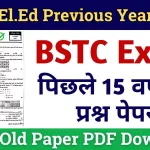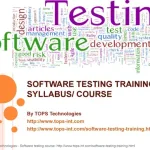B Ed question papers are crucial for preparing for the exams that aspiring teachers take. It’s important to have a thorough understanding of the subjects, and practicing various types of questions will help strengthen knowledge and boost confidence. This guide includes an extensive collection of questions and answers for better preparation.
Subject: Pedagogy of Education
Question: What is pedagogy?
Answer: Pedagogy refers to the method and practice of teaching. It involves strategies and approaches used by teachers to facilitate learning.
Question: Define educational psychology.
Answer: Educational psychology is the study of how individuals learn and the factors that influence learning in an educational setting.
Question: What are the different types of learning styles?
Answer: The main learning styles include visual, auditory, kinesthetic, and reading/writing preferences, which affect how students absorb information.
Question: What is the importance of classroom management?
Answer: Classroom management is vital as it ensures an organized learning environment, promotes discipline, and helps teachers effectively deliver lessons.
Question: Explain the concept of ‘constructivism’ in education.
Answer: Constructivism is a theory that emphasizes learning as an active process where learners construct new knowledge based on their experiences.
Question: What is the role of a teacher in modern education?
Answer: Teachers in modern education are facilitators who guide students in discovering knowledge and critical thinking rather than simply imparting facts.
Question: What is the concept of inclusive education?
Answer: Inclusive education refers to a system where all children, regardless of their abilities, disabilities, or background, learn together in the same educational environment.
Question: What are formative assessments?
Answer: Formative assessments are tools used during the learning process to evaluate student understanding and guide instructional decisions.
Question: Define the term ‘constructivist teaching’.
Answer: Constructivist teaching encourages active learning by allowing students to explore, experiment, and make sense of concepts based on their experiences.
Question: What are the types of learning objectives?
Answer: Learning objectives are typically classified into cognitive, affective, and psychomotor domains, covering knowledge, skills, and attitudes.
Question: What is scaffolding in teaching?
Answer: Scaffolding refers to providing structured support to students in their learning process, gradually reducing assistance as they become more capable.
Question: What are the key principles of Montessori education?
Answer: Montessori education focuses on hands-on learning, self-directed activity, and collaborative play in a child-centered environment.
Question: Describe the role of play in learning.
Answer: Play is a critical component in child development, fostering creativity, problem-solving, and social skills, while also making learning enjoyable.
Question: What are educational theories of Piaget and Vygotsky?
Answer: Piaget’s theory focuses on cognitive development stages, while Vygotsky emphasizes social interaction and the role of culture in learning.
Question: How does motivation affect learning?
Answer: Motivation influences the level of effort a student puts into their learning, affecting their engagement, persistence, and overall academic success.
Question: What is the difference between summative and formative assessments?
Answer: Summative assessments evaluate student learning at the end of an instructional period, while formative assessments provide ongoing feedback to improve learning.
Question: How do you handle disruptive behavior in the classroom?
Answer: Disruptive behavior can be managed by setting clear expectations, using positive reinforcement, and implementing consistent consequences.
Question: What is the role of feedback in learning?
Answer: Feedback is essential for guiding students’ progress, correcting mistakes, and reinforcing positive learning behaviors.
Question: What is differentiated instruction?
Answer: Differentiated instruction involves tailoring teaching methods and strategies to meet the diverse needs of students in the classroom.
Question: Explain the importance of self-regulation in learning.
Answer: Self-regulation is crucial for students to set goals, monitor their progress, and adjust their strategies to succeed academically.
Subject: Educational Philosophy
Question: What is educational philosophy?
Answer: Educational philosophy is the study of fundamental questions regarding education, such as its purpose, methods, and the nature of knowledge.
Question: Name the different branches of educational philosophy.
Answer: The primary branches are idealism, realism, pragmatism, and existentialism, each with different views on how education should be approached.
Question: Who is known as the father of educational philosophy?
Answer: John Dewey is often considered the father of modern educational philosophy due to his contributions to progressive education and experiential learning.
Question: What is the importance of educational philosophy in teaching?
Answer: Educational philosophy shapes a teacher’s approach to teaching, curriculum design, and how students should be engaged in the learning process.
Question: Define pragmatism in education.
Answer: Pragmatism in education emphasizes practical and experiential learning, where students apply knowledge to real-world problems.
Question: What is the concept of realism in education?
Answer: Realism in education focuses on teaching objective facts and truths based on the physical world and encourages students to understand reality through observation.
Question: Explain idealism in education.
Answer: Idealism in education stresses the development of intellectual and moral ideals, with a focus on teaching universal truths and fostering personal growth.
Question: Define existentialism in education.
Answer: Existentialism in education emphasizes individual choice, freedom, and personal responsibility, encouraging students to create meaning in their own lives.
Question: What is the significance of social reconstructionism in education?
Answer: Social reconstructionism aims to use education as a means to address societal issues, promoting critical thinking and social change.
Question: How does existentialism impact teaching methods?
Answer: Existentialism encourages teachers to focus on student individuality, fostering independent thought and self-expression in the learning process.
Question: What role does democracy play in education?
Answer: Democracy in education emphasizes participatory learning, where students have a voice in decision-making, promoting critical thinking and citizenship.
Question: What are the key principles of progressivism in education?
Answer: Progressivism focuses on active learning, student-centered education, and the belief that education should prepare students for a democratic society.
Question: What is the importance of a teacher’s personal philosophy?
Answer: A teacher’s personal philosophy shapes their classroom environment, teaching style, and interactions with students, influencing their educational outcomes.
Question: How does educational philosophy influence curriculum development?
Answer: Educational philosophy guides the goals, content, and approach of a curriculum, ensuring it aligns with the intended educational outcomes.
Question: What are the aims of education according to various philosophies?
Answer: Different philosophies aim to develop intellectual skills, moral values, social responsibility, or personal autonomy, depending on their focus.
Question: How does a teacher’s philosophy affect student motivation?
Answer: A teacher’s philosophy can either motivate or demotivate students by creating an environment that aligns with their values and learning needs.
Question: What is the difference between essentialism and progressivism?
Answer: Essentialism emphasizes core knowledge and skills, while progressivism focuses on student-centered learning and preparing students for democratic participation.
Question: What is the impact of the socio-cultural context on educational philosophy?
Answer: Educational philosophy is shaped by the cultural and social context, as different societies prioritize values such as individuality, community, or discipline in education.
Question: What is the significance of moral development in education?
Answer: Moral development helps students understand ethical principles, making them responsible citizens who can contribute positively to society.
Question: Explain the concept of knowledge transmission.
Answer: Knowledge transmission refers to the traditional approach where teachers transfer knowledge to students through lectures, books, and other resources.
Question: How do different educational philosophies approach the teacher-student relationship?
Answer: Different philosophies vary in their view of the teacher-student relationship, from teacher-centered instruction in essentialism to student-centered collaboration in progressivism.
Understanding the key concepts and theories of pedagogy and educational philosophy is essential for any future educator. By preparing with these questions and answers, you can gain a deeper understanding of the subjects and approach your exams with confidence.
Latest Posts
- Step-by-step guide to download and apply for jee mains admit card 202
- Comprehensive 2025 government holidays and recruitment details for job seekers
- JEE Mains Admit Card 2025: Your Step-by-Step Guide to Downloading the Hall Ticket
- Everything You Need to Know About 2025 Government Holidays Recruitment
- Comprehensive Guide to rrb d group recruitment 2025 – Eligibility, Vacancies, and Application
- Detailed guide to nps trust recruitment 2025 vacancies, eligibility and apply process
- Comprehensive guide to hpcl recruitment 2025 notification, vacancies, and application process
- ignou bed admission 2025 complete recruitment guide with eligibility and process
- Comprehensive Guide to Indian Army Agniveer Recruitment 2025 Notification and Jobs
- Everything You Must Know About CBSE Board Exams 2025 Changes & New Rules






